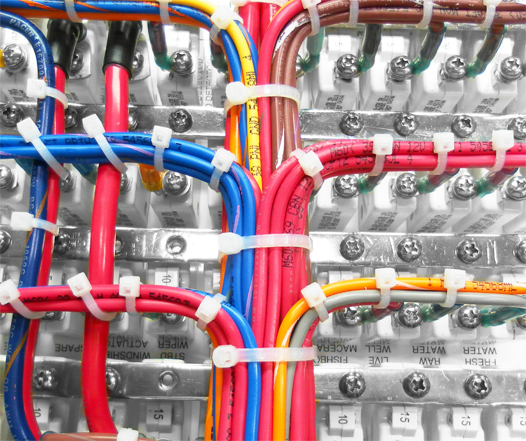What I learned about Copper, Tinned, and Aluminum Wire...
Posted by Pacer on 27th Mar 2017

*This Article was published on 3/27/2017 and was updated 8/06/2020*
Before I jump into a project I like to make sure I have all the necessary information. Research, I am a researcher. When it came to my current project. I came across several forums that dealt with wire. Not the process of wiring, but the wire itself. This got me thinking, and side tracked. How complicated is wire is what are the differences between the various types?
Why are different types of wire so important?

Whether you know it or not copper wire runs your life. The coffee maker you use in the morning. The car you drive. The home you sleep in. Even the city where you live. All of it is powered in part by wire. But, is all wire the same? The simple answer is no. They are not all the same. Different industries have different requirements for the wire used. Thickness, strength, insulation, and jacketing are common variables. I understood those concepts and so did most people on the discussion boards. What they didn't understand was quite simple; copper, tinned, and aluminum. Why the different types of metal and where would they be used?
"Different industries have different requirements for the wire used. Thickness, strength, insulation, and jacketing are common variables."
What are some of the main wire conductor types?
Although there are a vast number of wire conductor types, your time is precious, so I'll keep this short and only focus on tinned copper, bare copper, and aluminum conductors. I picked these three as they are three of the most common types of wire you'll find, and there is a bit of confusion between them that could stand to be cleared up.
![]()
Copper
Let's face it, there is a reason most systems use copper. It has great conductivity
only surpassed by Silver. Versatile, strong, and machinable; it is ideal for
electrical work. It even has an inherent resistance to corrosion in most
environments. So what are its shortcomings? Copper does not handle exact amounts of small
charges well. Corrosion in rugged environments diminishes performance. Why? At
higher temperatures the corrosion resistance of copper suffers. This lead to
the tinning of copper.
![]()
Tinned
Not only does tinning boost copper's properties, tinned wire lasts longer in temperatures of over 100 degrees Celsius! A 12
gauge tinned copper wire will last up to 10 times long than a comparable 12
gauge bare wire. Tinning makes soldering connections easier as tin is one of the primary
components of solder. In many forums, people that had a difficult time telling Tinned and Aluminum
apart. Tinned has a copper center and aluminum does
not. It seems you can't talk about wire without someone bringing up Aluminum.
So let's talk about it.
![]()
Aluminum
The boogie man of the industry. Aluminum to some this is the most controversial of
all three. People tend to get confused once aluminum enters the wire conversation. There is a lot of information out there about aluminum wire. We took a long look at much of the information and found a great article that summarizes some interesting information.
Carson Dunlop has a great article dispelling many of the myths of Aluminum wiring. Some key points of the article include;
- The idea that Aluminum wire was recalled and is not permitted in homes. FALSE
- Not as good at copper. FALSE
- Softness, Creeping, or Rusting were all connection issues. Read the article for solutions.
So which is the best type to use?

This is not an easy question to answer for a couple of reasons. There are factors that you need to consider. The most important factor to consider is of course, the application. where will this wire live? If the wire is going to be used in an environment where excessive heat may be an issue, you definitely need to factor that in. For example, sometimes people fail to consider that their wire may be subject to moisture in a marine environment. It seems like common sense, but a lot of people overlook whether their wire is marine rated on not. The fact is, each type of wire is best suited for a particular environment or application. Below, we will take a look at some instances where you may want one type over the other.
Where might I use each type?
As I said above, each type is especially suited for a given application. For example, tinned copper wire is the best suited for marine applications or use in environments where exposure to moisture is a concern. Bare copper is a great choice for applications that do not require any level of added protection or risk exposure to moisture. Aluminum is the best choice when needing the highest level of conductivity such as in overhead power transmission lines or local transmission lines. Just remember to fully understand the environment and power requirements before you select a type of wire.
![]()
Marine Usage
![]()
General Usage
![]()
Power Line Usage
I hope this helps clear up some of the miss information. In my case, I am going with tinned. I understand that although it is more expensive than copper. It has the properties I need for this project. It's effectiveness in high humidity areas, increased performance, dramatic durability are key points. Plus, it will pay for itself in less maintenance anjjhss5d worry free activities.
